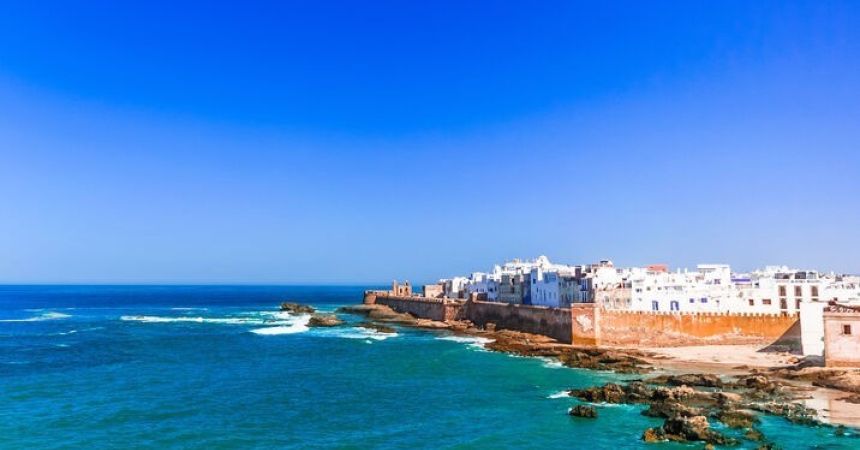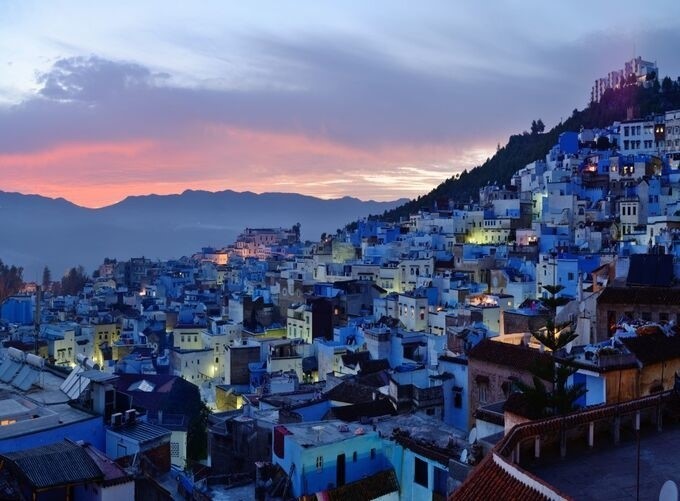
How to Prepare for a Morocco Vacation
Morocco, a land of vibrant culture, stunning landscapes, and rich history, offers a travel experience unlike any other. From the bustling souks of Marrakech to the serene sands of the Sahara Desert, preparing for a trip to Morocco requires careful planning to ensure a smooth and enjoyable journey. This comprehensive guide will cover everything you need to prepare for your Moroccan adventure, from travel documents and health precautions to packing tips and cultural considerations.
Travel Documents and Visas
1.1 Passport
Overview:
- Validity: Ensure your passport is valid for at least six months beyond your planned departure date. This is a standard requirement for entry into Morocco.
- Blank Pages: Make sure you have at least one or two blank pages in your passport for entry and exit stamps.
Tips:
- Photocopies: Carry photocopies of your passport and keep them separate from the original in case of loss or theft.
1.2 Visa Requirements
Overview:
- Visa-Free Access: Citizens of many countries, including the USA, UK, Canada, Australia, and most EU nations, can enter Morocco visa-free for stays up to 90 days. However, visa requirements can vary depending on your nationality.
- Check Requirements: Verify the visa requirements based on your nationality well in advance of your trip.
Tips:
- Travel Advisory: Consult the Moroccan embassy or consulate in your country for the most up-to-date visa information.
Health and Safety
2.1 Vaccinations
Recommended Vaccinations:
- Routine Vaccinations: Ensure you are up-to-date on routine vaccinations such as measles, mumps, rubella (MMR), and tetanus.
- Travel-Specific Vaccinations: Consider vaccinations for hepatitis A, hepatitis B, and typhoid, especially if you plan to visit rural areas or consume local food and water.
Tips:
- Consult a Travel Clinic: Visit a travel clinic or healthcare provider at least 4-6 weeks before departure to discuss any additional vaccinations or health precautions.
2.2 Health Precautions
Food and Water Safety:
- Safe Eating: Eat food from reputable restaurants and avoid street food if you have a sensitive stomach. Peel fruits and vegetables yourself.
- Water: Drink bottled or filtered water. Avoid tap water, and be cautious with ice and unpasteurized dairy products.
Medical Kit:
- Essentials: Pack a basic medical kit including over-the-counter medications for common issues like diarrhea, headaches, and allergies. Include any prescription medications you may need.
Tips:
- Travel Insurance: Obtain travel insurance that covers medical emergencies and trip cancellations.
2.3 Safety Tips
General Safety:
- Personal Safety: Morocco is generally safe for tourists, but exercise caution in crowded places and avoid isolated areas at night.
- Local Laws: Familiarize yourself with local laws and customs. Avoid illegal activities and be respectful of Moroccan cultural norms.
Emergency Contacts:
- Local Emergency Numbers: Know the local emergency numbers (police: 19, ambulance: 15) and the location of the nearest embassy or consulate.
Currency and Money
3.1 Currency
Overview:
- Moroccan Dirham (MAD): The official currency is the Moroccan Dirham. Familiarize yourself with the currency and exchange rates before you go.
- Exchange: Exchange some money before traveling and use local exchange services or ATMs upon arrival.
Tips:
- Credit Cards: Credit cards are widely accepted in hotels, restaurants, and larger shops. Carry some cash for smaller transactions and in rural areas.
3.2 Budgeting
Cost Considerations:
- Accommodation: Options range from budget hostels to luxury hotels. Plan your accommodation according to your budget and preferences.
- Food: Enjoy a variety of dining options from street food to high-end restaurants. Budget for meals, snacks, and beverages.
Tips:
- Tipping: Tipping is customary in Morocco. Tip service providers such as hotel staff, guides, and restaurant servers.
Packing Essentials
4.1 Clothing
Weather Considerations:
- Seasons: Morocco experiences varied weather depending on the region and season. Pack accordingly based on the time of year and destinations you’ll be visiting.
- Spring and Fall: Mild temperatures; pack layers and comfortable clothing.
- Summer: Hot; lightweight and breathable clothing is recommended.
- Winter: Cooler, especially in the mountains; bring warm layers and a good jacket.
Cultural Sensitivity:
- Modesty: Dress modestly, especially in rural areas and religious sites. Women should cover their shoulders and knees, while men should avoid wearing shorts in these settings.
Tips:
- Comfortable Footwear: Bring comfortable walking shoes or sandals for exploring cities and markets. If you plan to hike or explore the desert, include suitable footwear.
4.2 Travel Essentials
Items to Pack:
- Documents: Passport, visa (if required), travel insurance, and copies of important documents.
- Electronics: Power adapters for Moroccan electrical outlets (Type C and E), and chargers for your devices.
- Personal Items: Toiletries, sunscreen, and a reusable water bottle.
Tips:
- Daypack: Carry a small daypack for day trips and excursions.
4.3 Specialty Items
For Specific Activities:
- Desert Travel: Pack sun protection, a hat, sunglasses, and a scarf for sand protection.
- Mountain Travel: Bring warm clothing, layers, and a good pair of hiking boots.
Tips:
- Local Souvenirs: Save space in your luggage for souvenirs and gifts you may buy during your trip.

Transportation in Morocco
5.1 Getting Around
City Transportation:
- Petite Taxis: Ideal for local travel within cities. Ensure the meter is used or agree on the fare before starting your ride.
- Trams and Buses: Available in cities like Casablanca and Rabat. Check local schedules and routes.
Intercity Travel:
- Trains: Efficient for traveling between major cities. Book tickets in advance through the ONCF website or at stations.
- Buses: Bus services connect many cities and towns. CTM and Supratours are popular options.
- Car Rentals: Rent a car for greater flexibility, especially if exploring rural areas or the desert.
Tips:
- Driving: Ensure you have an international driving permit if you plan to rent a car. Familiarize yourself with local driving rules and road conditions.
Cultural Considerations
6.1 Respecting Local Customs
Dress Code:
- Modesty: Dress modestly to respect local customs, especially when visiting religious sites or rural areas.
- Behavior: Be respectful and polite. Avoid public displays of affection and be considerate of local traditions.
Etiquette:
- Greetings: Greet people with a polite “Salam Alaikum” (Peace be upon you) and use the right hand for greetings and giving/receiving items.
Tips:
- Photography: Ask for permission before photographing people, particularly in rural areas or at religious sites.
6.2 Language
Basic Phrases:
- Arabic: Moroccan Arabic (Darija) is widely spoken. Learning a few basic phrases can enhance your experience.
- French: French is commonly used in business and tourism. Knowing some French can be helpful.
Tips:
- Phrasebook: Carry a phrasebook or translation app to assist with communication.
Health and Safety
7.1 Personal Safety
General Advice:
- Be Aware: Stay aware of your surroundings, especially in crowded markets and tourist areas.
- Avoid Risks: Avoid risky behavior, such as accepting rides from unlicensed drivers or venturing into unsafe areas.
Tips:
- Emergency Contacts: Keep a list of local emergency contacts and the address of your accommodation.
7.2 Health Precautions
Travel Health:
- Medical Kit: Pack a basic first-aid kit and any prescription medications you might need.
- Vaccinations: Ensure you are up-to-date on recommended vaccinations.
Tips:
- Travel Insurance: Obtain comprehensive travel insurance that includes medical coverage.
Enjoying Your Trip
8.1 Embrace the Experience
Open Mind:
- Cultural Immersion: Embrace the diverse cultures, cuisines, and traditions of Morocco. Be open to new experiences and interactions.
Explore:
- Sightseeing in Morocco: Explore both popular tourist destinations and off-the-beaten-path locations. Visit markets, historical sites, and natural wonders.
8.2 Final Tips
Flexibility:
- Adapt: Be prepared for changes in plans and unexpected experiences. Flexibility will help you make the most of your trip.
Stay Connected:
- Communication: Keep in touch with family and friends. Share your travel itinerary and check in regularly.
Morocco Holidays: Where Culture and Beauty Collide
Preparing for a trip to Morocco involves more than just packing a suitcase. It requires understanding the local customs, health precautions, and transportation options to ensure a smooth and memorable experience. By following this comprehensive guide, you’ll be well-equipped to navigate Morocco’s vibrant landscapes and rich culture.



